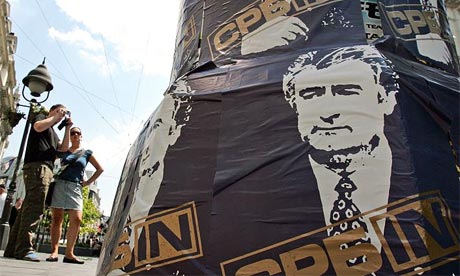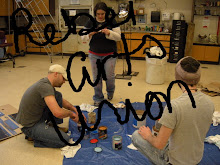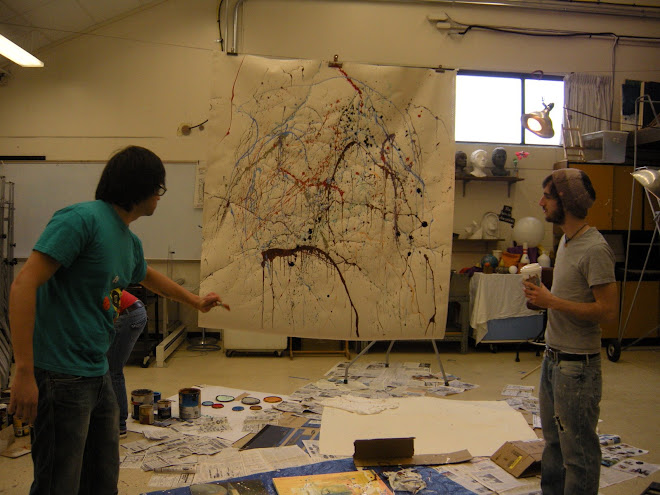2009 Julius Sokenu 1st Place Award for R.A.U.
Busted

The cop takes your ID.
The cop takes your keys.
The cop takes your money.
The cop takes your jacket.
The cop takes your wallet.
The cop takes your jewelry.
The cop takes your belt.
The cop takes your top shirt.
The cop takes your shoelaces.
Then the cop takes your shoes.
C'mon, man, leave me my sneakers.
No. Do you want your socks?
Yeah, I ain't goin' in there barefoot.
From in there
is a welling of yelling pooling under the door.
Loud and angry, drunk and drugged, forlorn and obscene.
There's a lot of fear coming from
in there.
Caged and wild, raw and tense, explosive and desperate.
Do you want your pants?
Disbelief!
Eyes meet eyes, a moment.
One pair daring, one pair watching freedoms die,
perusing the endless parade of replicates
behind this particular cop
suffocating the breadth of the world,
so even if rebellion is possible
there would be no end to the fight,
there would be no end to the flight,
there would be no end to the days like this,
there would be no sanctuary,
there would be
only worse . . .
so,
shattered,
believing,
blinking back
a tear of despair
in a sag of shoulders
and briefly bowing head,
a muttered:
Yeah.
Good. Let's go meet your new friends.
The captives hear us approach the door,
there's a jostling for position,
pleas to the cop to get meds
and to use the phone
begin before the door is reached.
On the other side of that door is another universe.
On the other side of that door is everlurking danger.
On the other side of that door is blood.
On the other side of that door is the naked Self.
On the other side of that door is Evil.
On the other side of that door is Submission.
Each step brings more
resigned composure,
back straighter,
shoulders higher,
muscles relaxing . . .
must maintain control . . .
nothing but a thing . . .
time to define a life . . .
it's just another day . . .
I know how it works . . .
I belong . . .
this is home . . .
again
no fear
until nobody's
Here.
Oh.
Please no.
The cop eyes you to stop,
unlocks the door,
opens it,
the decibel level rockets,
the shit stench rolls out
bearhugging the last hopes of freedom into submission.
The cop motions you in.
And with a sighful sigh
a signal from your soul
sends a silence so clear
it's easy to hear
as it fills your ears
. . .
Aw, damn, once more into the breach.
A frenzy of visuals assault the senses.
Shaggy beards, bald heads, tattooed faces, pierced bodies,
dirty, torn, ragged clothing
piss and spit mix with shit and vomit,
testosterone,
crusting
the environment
of steel bars and steel floors and steel slabcots
no padding
steel sinks and steel toilets
no handles
no seats
and cinder block walls
painted steel gray
and chipping with steel violence.
A frenzy of sounds assault the senses.
Guttural, spitting, angry, snarls
tinged with the diarrhea melt of underbelly fright,
questions, demands, pleas, wailings
directed mostly at the cop
pleading with venom . . .
some at the world,
in whipped whimpers . . .
and some at the newjack,
snarling hungrily . . .
who
looks back as if to say
this is no time to play.
A frenzy of feelings assault the senses.
Cold, hard, flat, unforgiving
nowhere any cuddles, any snuggles, any handles
on the razor slices of emotional combat
in a purgatory
where all the exits lead anew to another place,
that's the same place,
here again
to a land of fear where anger is king
and love is life's lost lyric.
A frenzy of smells assault the senses.
Biohazardous, sharp, biting, clawing
permeating the lungs and invading every pore,
rending sanity like bear claws through cheap toilet paper
as each breath is like a sloppy, chunky kiss
with the triple-turned bard of disease . . .
no escape . . .
the smell brings a hiccup of fear
quickly suppressed
but not before peeking,
in the barest mewl of silence,
as a tremor of a glint of a twitch of an eye.
oh mama, no.
I am
home.
Only the cop felt it,
Only the cop smiled.
















